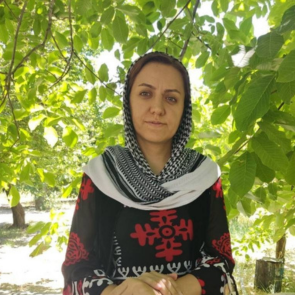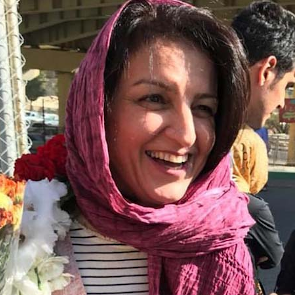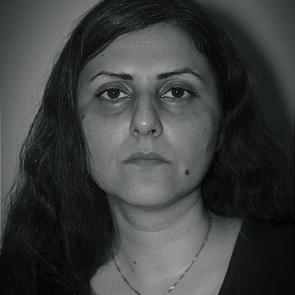Iran: Concerns over Israeli strikes at Evin Prison, new amendments to “espionage law,” mass arrest, and safety of detained human rights defenders
Front Line Defenders reiterates its call from 17 June 2025 for all states and the international community to adhere to their responsibility to protect human rights defenders in the context of the escalation between Israel and Iran from 13 to 25 June 2025. More specifically, Front Line Defenders urges Iranian and Israeli authorities, and all signatories of the Geneva Convention to adhere to their obligation to protect civilians, including human rights defenders. The organisation demands an international, impartial, and independent accountability investigation examining Israel’s attack on Evin Prison, where many human rights defenders were unjustly imprisoned. The results of the investigation should be reported publicly, and the actors violating international humanitarian law and human rights law should be held accountable for their actions.
On 23 June 2025, Israeli forces attacked the Evin compound, where Evin Prison, Evin Court, Kachouie office, and other administration centres are located. Prisoners, including human rights defenders, located in the clinic, library, and wards of Evin Prison reported being terrified by the attacks. Most prisoners were evacuated from the prison following the attacks. Nevertheless, according to a spokesperson of the Iranian Judiciary System, at least 71 people were killed, including prisoners, prison staff, social workers, guards, neighbours, and family members of the prisoners, with several more bearing injuries.
Over 60 women prisoners were transferred from Evin Prison to Qarchak Prison in Varamin, where they suffer from a poor hygiene situation and lack access to essential medical treatment. Men prisoners were mainly transferred to the Greater Tehran Prison, where they also reported poor hygiene conditions, including lack of access to clean drink water. During the transfer on the evening of 23 June, the prisoners, including human rights defenders, were shackled. The only exception was one severely injured prisoner. This significantly increased the risk to life of the human rights defenders and other prisoners as the transfer bus was exposed to Israeli air strikes.
On 21 June 2025, human rights defender Amirhossein Mirbahari was arrested by intelligence agents in his house in the east of Tehran. The agents confiscated the electronic devices of the human rights defender and transferred him to a high security cell run by the intelligence agency in Evin prison. At the time of the arrest, Amirhossein Mirbahari was recovering from a surgery due to gastrointestinal complications. As he has been denied access to a lawyer and family calls, his whereabouts remain unknown since the Israeli forces strikes on Evin prison.
Similarly, on 14 June, woman human rights defender Motahereh Gounei was arrested in Tehran after her house was raided by intelligence agents. She was arrested after publishing a social media post in which she criticised the Iranian leadership and blamed them for the country’s situation. Following her arrest, Motahereh Gounei was transferred Evin Prison, where she was also held in a high security cell run by the intelligence agency. There have been no news regarding her whereabout since 23 June, after the Israeli strikes at Evin prison.
On 23 June 2025, the Iranian parliament voted to intensify the punishment for charges related to “espionage” with nine amendments to the original text from May 2013. According to Amendment 1, any form of espionage for Israel or other actors considered hostile is punishable by death. Moreover, Amendment 4 of the new espionage law stipulates that any propaganda activities that are considered hostile or undermining Iran’s national security can be punished with up to 15 years in prison, and if it falls under the first amendment of the espionage law, with the death penalty.
During and after Israel’s attack on Iran on 13 June, Iranian state media reported the arrests of over 700 individuals on the national security charges, including the “espionage law.” Marginalised ethnic and religious groups and refugees are among the most targeted. During the arrest of woman human rights defender Motahareh Gounei, she was shown an arrest warrant without any names mentioned on it, prompting concerns that other arbitrary arrests were executed in the same manner.
The Iranian Coordination Council of the Teachers Association (ITTA) reported that nine teachers’ rights defenders were indicted on 25 June 2025 by the Branch I of Kerman Revolutionary Court, in the city of Kerman. They have been charged with “insulting the sacred and authorities,” “propaganda against state,” and “disturbing the country’s security by membership in opposition groups.” They are expecting their trial on 20 July 2025.
Front Line Defenders is deeply concerned over the new amendments to the “espionage law” and the intensification of the punishment for this charge without respecting due processes and fair trials. While Amendment 1 violates the individuals’ right to life, Amendment 4 restricts the work of human rights defenders, journalists, and those documenting violations of human rights and freedom of assembly and association, and exposes them to higher risk of prosecution.
Front Line Defenders joins the call of the UN Fact-Finding Mission and the Special Rapporteur on Iran expressing their concerns over the intensification of the national security charges, some of which are punishable by death. This is highly concerning considering the high number of arbitrary arrests of human rights defenders, journalists, social media users, and Afghan nationals who could be charged under the amended laws. Front Line Defenders is particularly alarmed over the wave of deportation of Afghan nationals, including human rights defenders in Iran who had fled prosecution in Afghanistan. On 30 June 2025, the spokesperson of the International Organisation for Migration (IOM) reported that 233,941 Afghans were returned from Iran to Afghanistan in June 2025, with 131,912 returns recorded in the week of June 21-28 alone. The Iranian government announced that the deadline for undocumented Afghans to leave the country is 6 July 2025.
Front Line Defenders urges the Iranian authorities to disclose the whereabout of human rights defenders Motahareh Gounei and Amirhossein Mirbahari, and to allow them access to a lawyer and phone calls. Front Line Defenders demands their immediate release or to furlough them on humanitarian grounds together with other human rights defenders, including Golrokh Iraee, Nasrin Javadi, Fariba Kamalabadi, Serveh Pourmohammadi, Jina Modares Gorji, Sharifeh Mohammadi, Mohammad Najafi, Mohammad Reza Faghihi, Reza Khandan, Ahmadreza Haeri, Taher Naghavi, Mehdi Mahmoudian, Esmail Gerami, and Zia Nabavi.















